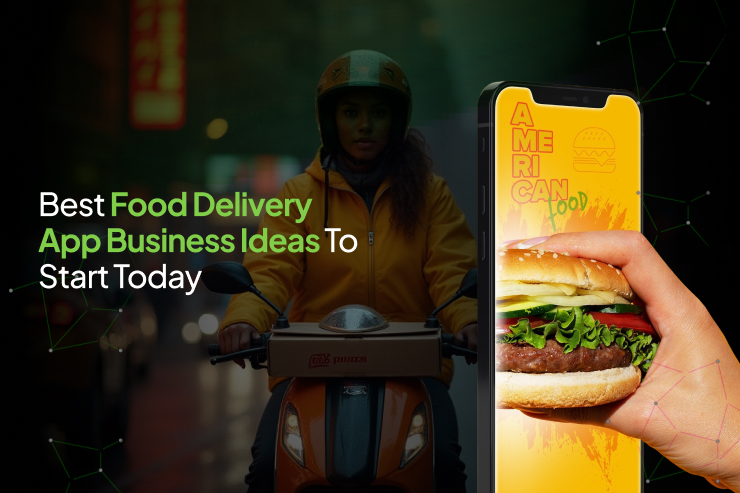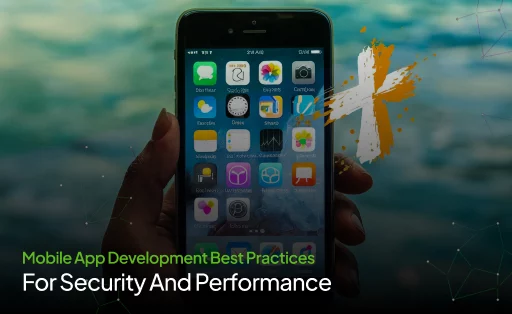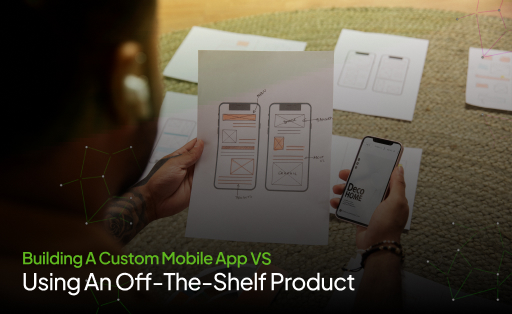The 15 Best Shopping Apps In The US Tech
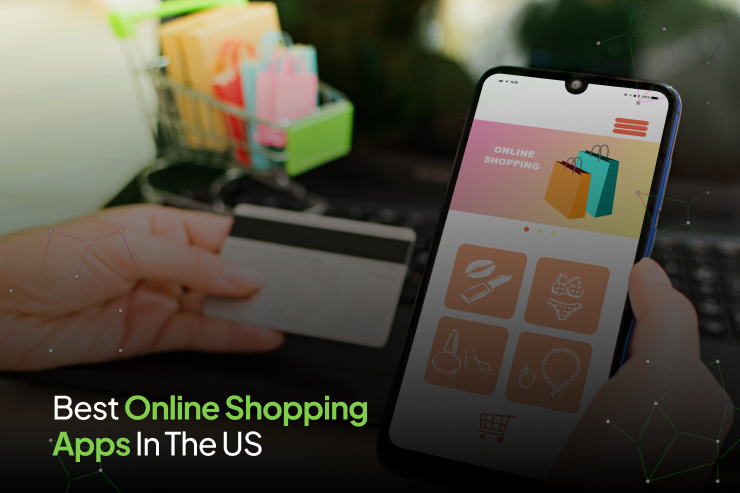
Apps for online shopping have never been more popular than they are at the moment. Every day, more and more people select the ease of shopping straight from their phone, reducing the need to go to a store or even launch their browser.
These days, any successful retailer usually builds their own dedicated shopping app. However, the world of shopping apps goes far beyond just brand-specific platforms. Many of the most well-known apps today are marketplaces, multi-brand platforms, or tools designed to improve the shopping experience, whether online, in-store, or both.
Whether you are a consumer seeking your online shopping fix or a retailer looking for instances of successful apps, we have got you covered in our list of the best shopping apps in 2025.
Mobile Commerce/Online Shopping Market Size
For business owners leading the digital economy, the message is clear: mobile commerce isn’t the future; it’s the present. The global online shopping market was estimated at around USD 18.77 trillion in 2024 and is projected to reach around USD 75.12 trillion by 2034, increasing at a CAGR of 14.88% from 2025 to 2034. This massive growth highlights the scale and momentum of e-commerce worldwide, with the U.S. and China continuing to navigate the charge as two of the leading markets universally.
In today’s competitive landscape, digital transformation is no longer an option. It’s a strategic imperative to sustain growth, meet developing consumer expectations, and build long-term customer loyalty. eCommerce market user penetration will be 57.2% this year and 66.6% by 2027, when the expected number of users will grow to 5.29 billion.
While the development of e-commerce is well predictable, the real shift is occurring within mobile commerce (m-commerce), online shopping led directly through smartphones and tablets. As of 2023, as per the report by Business of Apps, mobile commerce accounted for 7.6% of all retail sales in the U.S. In contrast, on a global scale, m-commerce sales extended to $2.07 trillion, demonstrating 57% of total e-commerce sales universally, as reported by Statista.
It is imperative for business owners to understand that mobile-first is now the norm rather than a trend. Traditional online retailers today face the same challenges as brick and mortar stores, which had to adapt to the disruption of e-commerce. Missing out on a growing majority of worldwide purchasers is the result of failing to adjust to mobile-first consumer behavior.
Investing in mobile shopping infrastructure, especially for branded apps, is not just an opportunity but also a requirement to remain successful, competitive, and accessible.
Types of Shopping Apps
Not all shopping apps are alike. The shopping app market includes a number of diverse types of apps, big and small, branded apps, and utility apps. Let us look at these different kinds of shopping apps.
-
Brand Apps
Brand apps are built by individual brands to sell their own products. They often deliver exclusive deals and discounts to shoppers over the app, above what’s offered to in-store customers or shoppers over their website.
Example
Zara, Nike
-
Grocery Apps
These are only grocery stores, right there over your mobile device. Grocery apps are not too different from multi-brand retail apps, but specialize in groceries and household essentials. They usually enable users to generate digital shopping lists and order groceries online to be delivered to their door or picked up in-store.
Example
Instacart, Shipt
-
Multi-Brand Retail Apps
Multi-brand apps are retailers providing products from a range of diverse brands. All products are sold by a single retailer unlike marketplace apps, which have many individual sellers, but there is a vast array of branded products accessible than with a single brand app.
Example
ASOS, Target
-
Marketplace Apps
Marketplace apps engage sellers and buyers of all types of products and services. eBay and Amazon are great instances providing products for sale from a huge number of individual sellers and small businesses.
Due to the diversity and competitive nature of sellers over online marketplaces, they usually have a wide range of items to select from and offer competitive prices.
-
Coupon, Deal & Cashback Apps
These apps offer deals, coupons, cashback, and rewards on a wide-range of services and products. They might be used in-store, over retailers’ websites, or in some cases enable shoppers to purchase products on the app as well.
Example
Capital One Shopping, Rakuten, Groupon
Examples
eBay, Amazon
-
Buy and Sell Apps
These are apps that directly engage buyers and sellers in a less formal setting than with marketplace apps like Amazon. Like a digital thrift store, buy and sell apps emphasize on used items, allowing users to sell old or unwanted items to other users.
Example
Poshmark, OfferUp
Do You Have an E-commerce App Idea?
Let's ConnectMost Popular Shopping Apps on iOS
There will be a lot of overlap between the best shopping apps and those that are the most well-known in the app stores.
With that in mind, let us take a look at the most prevalent shopping apps, beginning with shopping apps for iOS/iPhone.
- Temu
- Shein
- Amazon
- Walmart
- Shop
- Nike
- Etsy
- eBay
- Poshmark
- Home Depot
- Target
- OfferUp
Most Popular Shopping Apps on Android
Here are the most popular shopping apps in the Google Play Store.
- Temu
- Shein
- Amazon
- Walmart
- Stocard
- Home Depot
- OfferUp
- Alibaba
- AliExpress
- Shop
- eBay
- Capital One Shopping
Best Shopping Apps in 2025
Let’s take a thorough look at top shopping apps in 2025, specifically emphasizing on the most preferred ones by the users.
-
Temu: Shop Like a Billionaire
Downloads: 122.5 million
Temu has evolved as the most downloaded shopping app, setting a new standard for mobile commerce. Its assertive pricing strategy and vast product range, from fashion to electronics, exhibit the power of mass-market appeal combined with cost efficiency. For entrepreneurs and app developers, Temu’s growth signals the efficiency of providing deep discounts and targeting value-conscious consumers. Its model proves particularly relevant for businesses seeking to scale rapidly in price-sensitive markets.
-
SHEIN – Shopping Online
Downloads: 36.51 million
Shein continues to dominate the fast-fashion segment thanks to a highly intuitive user interface and rapid inventory turnover. For business owners in fashion retail, Shein represents a masterclass in supply chain agility and trend responsiveness. It also shows how appealing to Gen Z and millennial shoppers through influencer marketing and social integration can drive high app engagement. Businesses developing fashion apps can draw inspiration from Shein’s algorithm-driven product recommendations and speed-to-market strategy.
-
Amazon Shopping
Downloads: 23.81 million
Amazon stays the gold standard in e-commerce. Amazon app combines immense product variety, reliable customer reviews, consistent fulfillment, and major advantages into one simplified platform. Amazon’s success in exploring app development for businesses highlights the value of logistical brilliance, reliance, and customer-first design. Entrepreneurs can study Amazon’s UI/UX and customer service protocols to match a high-converting shopping experience.
-
Walmart: Shopping and Savings
Downloads: 22.72 million
Walmart’s app is a strong instance of omnichannel integration, smoothly combining online ordering with in-store services such as curbside pickup and local delivery. For retailers with physical locations, Walmart provides a scalable model of blending brick-and-mortar with digital ease. Business owners can take note of how Walmart uses its considerable physical footprint to improve digital sales and loyalty via features like real-time inventory tracking and price rollbacks.
-
Nike: Shoes, Apparel, Stories
Downloads: 11.44 million
Nike has successfully changed its app into more than just a storefront; it’s a brand engagement platform. With features such as selective stories, exclusive product drops, and trend content, Nike builds greater loyalty while driving sales. Business owners can learn from Nike’s ability to balance content with commerce, making the shopping journey a premium and an experience-first.
-
Etsy: Home, Style & Gifts
Downloads: 11.11 million
Etsy is a strong player in the niche marketplace space, with an emphasis on handmade, vintage, and one-of-a-kind products. Its appeal lies in supporting individual creators and providing a unique inventory. For founders seeking to build community-driven platforms, Etsy’s dedication to authenticity and craftsmanship is a case study in niche loyalty and high-margin product success.
-
Target
Downloads: 10.92 million
Target’s app offers a smooth omnichannel experience, enabling users to shop online while including services like curbside pickup and drive-up. The brand continues to win market share by merging convenience, value, and strong customer service. Companies with physical stores can learn from Target’s hybrid retail strategy for scalable, customer-focused innovation.
-
eBay: Selling & Shopping Online
Downloads: 9.53 million
With its auction methodology and collector-friendly platform, eBay has maintained its relevance by appealing to buyers of rare and used goods. Business owners’ emphasis on resale or circular economy trends can evaluate eBay’s ability to maintain user trust and engagement over decades through a buyer-seller marketplace structure.
-
OfferUp – Buy. Sell. Letgo.
Downloads: 9.24 million
OfferUp flourishes on hyperlocal commerce, encouraging users to buy and sell goods within their own communities. By using simplicity and security features, it promotes trust among users. For entrepreneurs creating peer-to-peer platforms, OfferUp’s model offers insight into how to scale local marketplace ecosystems effectively.
-
Poshmark: Buy & Sell Fashion
Downloads: 8.82 million
Poshmark has built a flourishing social-commerce marketplace around second-hand fashion. With features that boost user interaction and community engagement, Poshmark is a leading performer in the resale space. Business leaders in fashion or peer-to-peer resale should observe how community-building tools can improve product discovery and retaining.
-
Shop
Downloads: 10+ million
Shop is the consumer-facing app for Shopify, one of the world’s top e-commerce platforms today. Though initially known for being the backend platform of self-governing online stores, the Shop app is a way for shoppers to browse and buy from a number of brands that use Shopify. It comprises order updates, exclusive offers and discounts, and the ability to earn Shop cash, which can be consumed in the app.
-
ASOS
Downloads: 10.4607 million
ASOS is a top fashion shopping app with more than 850 brands and 85,000 products in apparel, shoes, beauty, and accessories.
ASOS makes shopping for stylish clothes easy. Free shipping and returns improve the app’s buying experience. ASOS also uses image recognition technology to allow users to easily find similar products via taking photos or uploading photographs.
-
Instacart
Downloads: 13.4 million
Instacart’s app has become more recognized given its convenience of use for grocery shopping. Customers can order things from their ideal neighborhood dealers and have them delivered in an hour to their door. Users can keep shopping lists for easy reordering and take advantage of contactless delivery options over the app.
-
Rakuten
Downloads: 10.35 million
Rakuten is a renowned cashback shopping app with more than 3,500 businesses. Along with its wide range, the app involves a browser plugin to help users find discounts online.
Rakuten’s cashback rewards system assists customers in earning rewards with every app, website, or link transaction, encouraging Rakuten shoppers by providing financial incentives.
Shoppers can get cashback through cheque or PayPal, enhancing the app’s user experience and convenience. Rakuten encourages consumers to spend smarter and save more with strong Play Store and Apple App Store ratings.
-
AliExpress
Downloads: 500+ million
AliExpress is a great option for consumers. It’s a Chinese retail app kept by Alibaba that looks like an amalgam of eBay and Amazon. It feels a lot like Amazon when you browse around, but it’s actually just a group of small businesses selling products to you, similar to eBay. This is a great wildcard app because you may find all types of antique stuff here that you would not get on other websites. But, since most of the items take a while to ship, be ready.
Build a Walmart-Like Shopping App Today
Let's ConnectWhy You Should Launch Your Own Shopping App?
With every huge brand or retailer today having their own app, there must be something to be said regarding the advantages of shopping apps.
Branded shopping apps provide brands and retailers a closer connection with their customers, and lead to higher profit and sales.
For retailers, the benefits of shopping apps compared to physical retail or shopping on mobile websites include:
- Improved customer engagement metrics, such as conversion rates, time spent in-store, and products viewed.
- More recurrent visits and repeated customers.
- A better, easier shopping experience.
- A direct line to your customers through push notifications.
- App store listings, which offer a potential acquisition channel and maximized trust signals.
A shopping app allows you to have an audience that you lead and who possibly spend more with you and buy more often.
How can Progatix help you launch a shopping app?
Think of launching a branded shopping app only for retail giants like Zara or Nike? Think again.
At Progatix, we strengthen businesses of all sizes to build inventive mobile shopping experiences, without the enterprise-level price tag.
If your e-commerce site is already optimized for mobile (and it should be), you’re already midway there. Our custom software development team can take your existing web store and change it into completely functional Android and iOS apps, complete with native navigation, push notifications, smooth user experience, and potential backend integrations.
Unlike standard development paths that can cost mid-5 figures or more for each platform, Progatix delivers value-driven, cost-effective solutions personalized precisely to your business requirements. From the initial strategy to the launch, we manage the whole process; all you need to do is test and provide support.
With Progatix, you’re not just getting an app but a scalable, future-ready mobile shopping solution designed to boost growth, optimize workflows, and promote customer satisfaction.
Get Your Custom Shopping App Today
Let's Connect
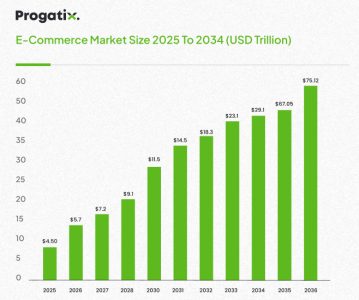


 Let's Discuss Your Tech Solutions
Let's Discuss Your Tech Solutions 

